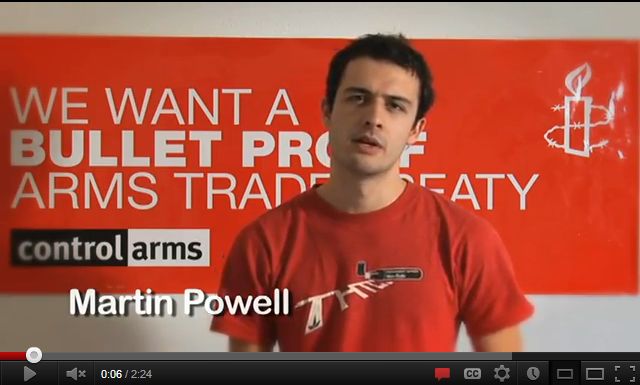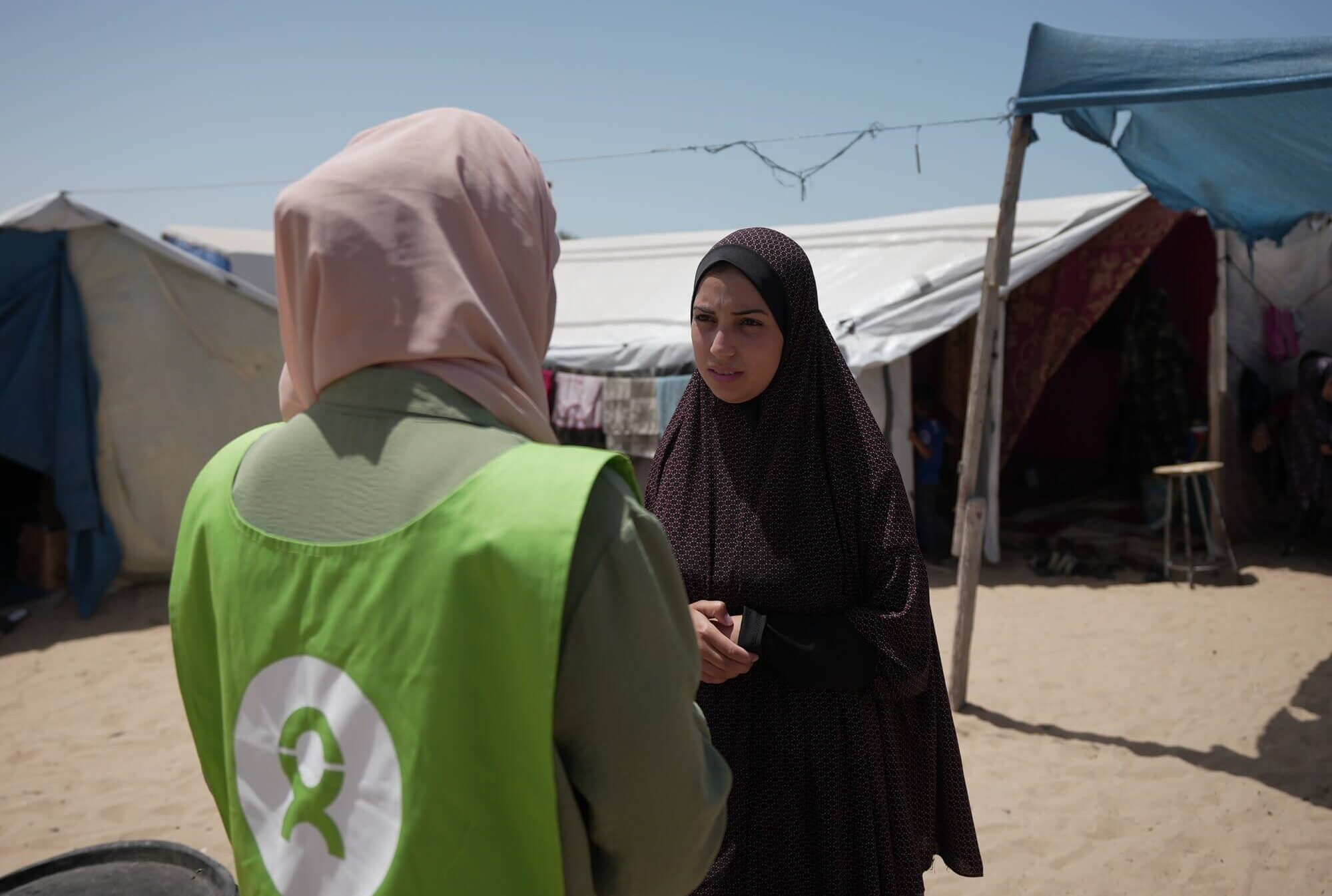By Ben Murphy
Thousands of people are killed, injured, raped, and forced to flee their homes as a result of the unregulated global arms trade. The Control Arms campaign is a global civil society alliance calling for a bulletproof Arms Trade Treaty: a global, legally binding agreement that will ease the suffering caused by irresponsible transfers of conventional weapons and munitions.
As part of “100 Days of Speaking Out!”, a countdown to the treaty negotiations, the Control Arms campaign is regularly featuring stories and profiles of different people who support a bulletproof ATT.
Below are just a few of these voices:
“The Arms Trade Treaty matters to me because the people of South Sudan still have deep scars and traumas to heal after decades of armed conflict. We have a new 2,000-km border in the north that is straddled by ethnic groups and nomadic herders, many of them still highly militarized. There are provocations made across that border, including evidence of support for armed groups in South Sudan.
Early in 2012, 6,000 young fighters from one ethnic group attacked another ethnic group in a dispute over cattle stealing. They killed about 600 people. The attackers were from an ethnic group that just went through a disarmament process two years ago. Now they have brand-new guns. Where does one get new guns for 6,000 young men?
Churches have made numerous interventions in such disputes but, if illegal weapons are fed into the situation, things can easily get out of hand. By building consistent trade policies around the world, a strong and effective ATT would make it much more difficult for young people to obtain illegal weapons. An ATT would help save lives.”
Honourable Joy Kwaje, is a Member of Parliament, long-time leader of church women and former Commissioner for Human Rights in Juba, South Sudan
“Anytime I see a patient with gunshot injuries, the first thing that comes to my mind is, ‘Yes you may be able to treat the patient, but will you be able to heal the scars?’
As a young medical student on mission working in the refugee camps in the Darfur region of Sudan, there were many victims of bullets all over the place and it was really hard to comprehend the human suffering. I decided to dedicate my time to reducing the burden of injury by gunshots. I helped produce the first One Bullet Story on the human face of small arms violence from Nigeria.
The One Bullet Story is a program of IPPNW to develop case studies on gunshot injuries from all over the world to show not just the medical costs but the full range of costs to the victims, their families, and their communities. I still keep telling myself there is so much work to be done. Joining the campaign as a health voice at the Arms Trade Treaty at the UN makes the struggle worthwhile, and I plan to work for a strong and humanitarian-based ATT along with my medical colleagues. My hope is that whether it be it in Lagos, Hong Kong, London , Miami or Cairo, guns will be a thing of the past and we will begin to live in a safer world.”
Daniel Bassey, MD is with the Society of Nigerian Doctors for the Welfare of Mankind (IPPNW Nigeria)
“In the time that it has taken us to do this difficult work, millions of civilians have been killed by small arms and light weapons flowing unrestricted across borders, most of them into the developing world. Many thousands of child soldiers have been armed. Families have been torn apart. And it is impossible to calculate the damage done by poor countries’ choice to spend on illegal or unnecessary weapons, diverting funds that should be spent on education and health care.
The people affected by the international community’s lack of binding regulations on the trade of arms, numbers in the millions. They are our ambition. They are our ideal. They are the reason for the late nights that have been dedicated to the details of this treaty. The challenge before us is not just to get a document signed.
The challenge before us is to do justice to those victims of violence. The challenge before us is to ensure that our goal becomes reality. These men and women and children deserve nothing less than swift and effective action.”
Dr. Oscar Arias Sanchez, former President of Costa Rica and recipient of Nobel Peace Prize
You can take action today in calling for a bulletproof Arms Trade Treaty



